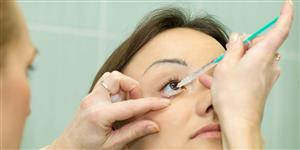Coronavirus and Your Macular Degeneration Care
Adapted from publications released by the American Academy of Ophthalmology on March 27, 2020 and the American Macular Degeneration Foundation on March 19, 2020.
If you have macular degeneration, you may feel worried about catching the coronavirus or maintaining your eye care during the pandemic. Our office is taking precautions to insure the health and safety of our patients by reducing the potential for virus transmission and enforcing social distancing. Some of the things we are doing include:
- Rescheduling routine patient visits
- Postponing some surgeries
- Asking patients without urgent problems to stay home
- Decreasing the number of patients in our waiting room
- Regularly disinfecting surfaces
- Having staff members wear masks
- Having the doctor speak as little as possible during parts of the examination, and requesting that the patient also refrain from talking in these moments.
Additional precautions being taken:
- Telling patients with cold, flu, and allergy symptoms to stay at home
- Screening patients with questions about fever, cough, travel history, and the travel history of family members
- Asking that patients wear a surgical mask if they have any sign or symptom of respiratory disease
- Rescheduling the visits of those who are sick, have a cough or fever, have been exposed to COVID-19 or have recently traveled outside the United States
- Referring patients and staff members with a temperature above 99.5º to their primary care providers
- Asking anyone accompanying a patient to remain outside the building, where they will be contacted by text message when the patient departs
What you can do to maintain your vision health during these difficult times
For patients with early, dry AMD: postpone non-urgent doctor visits, maintain home monitoring and continue making healthy lifestyle choices.
At home, you can track changes in your vision by using the Amsler Grid. It is advised to monitor at least once a week.
If the doctor has advised supplements with lutein and zeaxanthin, continue with those, as well as an eye-healthy diet (which is also good for your heart and general health). However, if you are taking a supplement for AMD that contains zinc (which is included in the recommended AREDS and AREDS2 formulas), taking additional zinc lozenges for cold or flu prevention may lead to zinc toxicity. Check with your doctor, as your AMD supplement may already supply all the zinc you need to maintain your immune system.
Comments About AMD and Coronavirus
If you have dry AMD that has been relatively stable, it is likely your appointment will be postponed.
If you have noticed a sudden change in vision, phone us to determine if there is any urgency. You may be asked to come to the office for urgent care.
If you have wet AMD, receive regular eye injections and are also in a high-risk group for COVID-19, you need to make a decision. Studies confirm that maintaining a regular schedule of eye injections is important in retaining the vision you have, and missing even one appointment can have a negative effect. We are taking appropriate precautions and feel that patients should not sacrifice their sight to fear. Based on how long you’ve been receiving injections and how stable your vision is, the doctor may be comfortable with stretching the time between injections — but that is a determination that must be made by the doctor. Phone us if you have questions.

